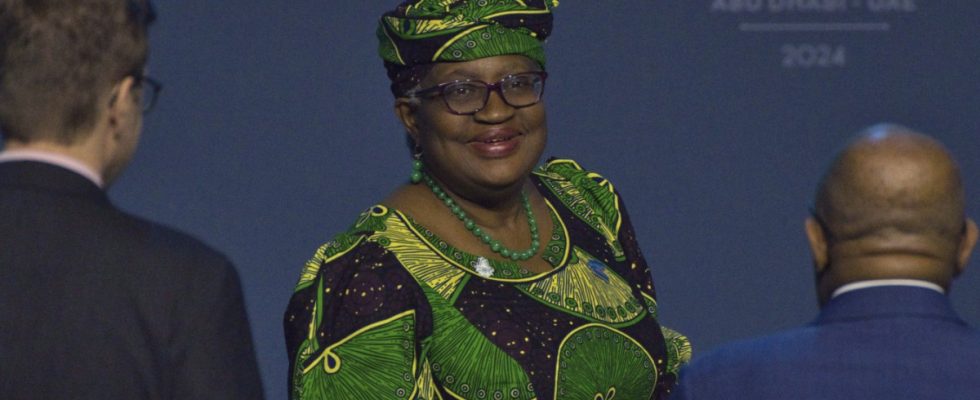Trade ministers from almost all countries met in Abu Dhabi for a four-day meeting of the World Trade Organization (WTO). Their boss Ngozi Okonjo-Iweala tried to dampen expectations of the round at the start on Monday. In her opening speech, she described the atmosphere as “tougher” than at the previous WTO meeting in 2022. The Nigerian cited wars, political tensions and poor growth as the reasons for this. Okonjo-Iweala urged trade ministers present to “roll up their sleeves.” However, they do not expect an agreement in Abu Dhabi on reforming the organization’s defunct Court of Appeal, which decides on disputes between member countries. “We are not there yet,” said the WTO Director General. The almost 30-year-old organization, whose rules govern three quarters of world trade, strives for consensus agreements. However, these are becoming increasingly difficult to achieve as there are increasing signs of the global economy fragmenting into several blocs.
“The multilateral trading system, of which the WTO is the core, is at a critical juncture and faces many challenges,” admitted conference chief and UAE Foreign Trade Minister Thani Al-Sejudi in his opening speech. The WTO remains a strong force in the fight against unilateralism, protectionism and discrimination. “We are not in dreamland here,” a trade delegate told Reuters. “International cooperation is in a bad state.”
Nevertheless, negotiators are betting that an agreement will be reached on the controversial issue of fishing, for example. The WTO is hoping for a new agreement that would preserve global fish stocks and protect fishermen by banning government subsidies. At the meeting, which takes place every two years, two new member states, the Comoros and East Timor, are to be admitted. An agreement between around 120 countries to eliminate investment obstacles that hinder development is also within reach. However, it will be difficult to reach an agreement on a 25-year moratorium on the application of tariffs to digital trade. South Africa and India reject this. An agreement on agricultural trade rules is also considered unlikely.
The German Chamber of Commerce and Industry (DIHK) warns of the progressive erosion of the world trading system. Geopolitical developments led to increasing global economic decoupling, which shook the foundations of the multilateral rules-based trading system, said DIHK expert Melanie Vogelbach. More than half of German companies’ non-European exports were based exclusively on WTO rules. Without these rules, German companies would no longer be able to rely on the strength of the law in foreign trade. For export-oriented companies in Germany, fair competitive conditions, market access and legal certainty in foreign business are of outstanding importance.
The German economy hopes that the ministerial conference will preserve the ban on tariffs on data transfers and make progress in reforming WTO dispute settlement. “We need a holistic vision – this applies to negotiations, monitoring and advice as well as to dispute resolution,” said the President of the Federal Association of Wholesale, Foreign Trade and Services (BGA), Dirk Jandura. In addition, the moratorium on customs duties on electronic transmissions must be permanently extended. “This will support digital commerce and level the playing field for small businesses worldwide,” said Jandura.

